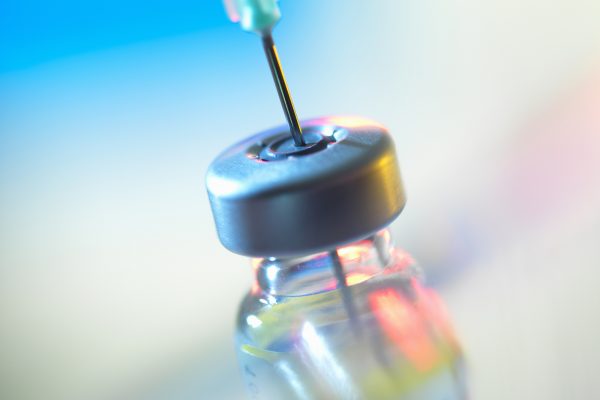
On May 19th, 2023, the Food and Drug Administration (FDA) granted accelerated approval to epcoritamab (EpkinlyTM), for the treatment of relapsed or refractory (R/R) diffuse large B-cell lymphoma (DLBCL) not otherwise specified, including DLBCL arising from indolent lymphoma, and high-grade B-cell lymphoma after two or more lines of systemic therapy. This decision was based on the results of the phase EPCORE NHL-1 study trial and represents an important advance for patients with R/R DLBCL, who currently face a poor prognosis.
Despite the emergence of new therapies, managing relapsed or refractory (R/R) diffuse large B-cell lymphoma (DLBCL) remains a challenge. In this, patients with early relapse or primary refractory disease continue to face a particularly poor prognosis. However, a potential breakthrough comes in the form of epcoritamab, a subcutaneously administered, bispecific antibody targeting CD3 and CD20 that redirects and activates T cells to eliminate CD20-expressing malignant cells. In preclinical evaluation, epcoritamab resulted in potent and selective T-cell-mediated cytotoxic activity against CD20+ malignant B cells. The dose-expansion cohort of the EPCORE NHL-1 study evaluated the efficacy and safety of subcutaneous epcoritamab in patients with R/R DLBCL. Encouraging results from this study led to the accelerated FDA approval of epcoritamab as a treatment option for these patients.
The phase open-label, multi-centre I/II EPCORE NHL-1 study enrolled patients with R/R DLBCL, not otherwise specified, including DLBCL arising from indolent lymphoma, and high-grade B-cell lymphoma after two or more lines of systemic therapy, including at least one anti-CD20 monoclonal antibody-containing therapy. This trial consisted of a phase 1 first-in-human dose escalation part, and a phase 2 expansion part. The dose escalation findings determined the recommended phase 2 dose. In the dose-expansion cohort, participants received 1 ml injection of epcoritamab in a 28-day cycle until disease progression or unacceptable toxicity. The primary endpoint was overall response rate (ORR). Overall survival, time to next therapy, and rate of minimal residual disease negativity were evaluated as secondary efficacy endpoints.
In total, 148 patients were included in the efficacy population. An ORR of 61% (95%CI: 53-69) was reported, with an encouraging 38% of patients achieving a complete response. Among responders, the median follow-up was 9.8 months, and the estimated median duration of response (DOR) was 15.6 months (95%CI: 9.7, not reached). The most common (≥20%) adverse reactions were cytokine release syndrome (CRS), fatigue, musculoskeletal pain, injection site reactions, pyrexia, abdominal pain, nausea, and diarrhoea. The most common grade 3-4 laboratory abnormalities (≥10%) were decreased lymphocyte, neutrophil and white blood cells, as well as decreased haemoglobin and platelets.
In conclusion, subcutaneous administration of epcoritamab resulted in deep and durable responses while maintaining a manageable safety profile, in a cohort of highly refractory patients with DLBCL, including individuals with prior exposure to CAR T-cell therapy. These compelling data provided a strong basis for the granted accelerated approval of epcoritamab, indicating its potential as a valuable treatment option for this challenging patient population.
Reference